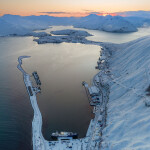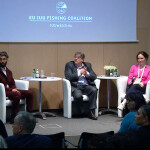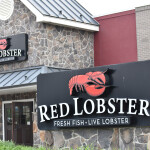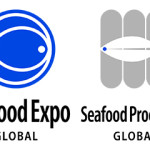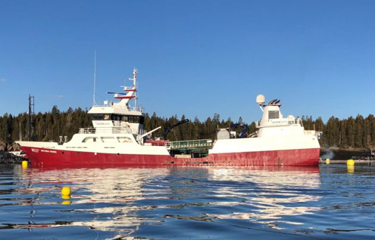Bergen, Norway-headquartered Mowi has experienced mass-mortality events at several of its salmon-farming sites in Canada and Ireland.
Mowi’s Little Bay, Chaleur Bay, and Friar Cove farming sites, collectively containing nearly 2.75 million salmon, experienced mortalities of more than 210,000 salmon in October, according to a company press release. The cause was determined to be hydrolicer and thermolicer sea lice treatments completed in mid-October, with the fish succumbing over the course of several weeks. All three sites had been scheduled for harvest by the end of 2021.
Through the summer, Mowi has been trialing new sea lice mitigation techniques, including the use of fresh water treatment onboard the company’s Viktoria Viking wellboat and the use of a thermolicer for 250-gram smolt.
Last month, a separate Mowi-operated salmon farm in Newfoundland, “The Gorge,” reported up to 489,000 salmon deaths, or more than 50 percent of the 900,000 fish being raised at the farm. Mowi blamed the incident on “sudden low dissolved oxygen levels at the farm site.”
The Newfoundland and Labrador Department of Fisheries, Forestry, and Agriculture first reported abnormal mortality levels at the site on 11 September, with an initial estimate from Mowi putting the number of dead fish at 92,700. That number went up later in September and again on 12 October.
“The company’s public reporting confirms that government’s strengthened public reporting policy is working,” it said. “Marine Harvest Atlantic Canada has been fully transparent and cooperative, and the department will continue to monitor this incident.”
In a press release, Mowi said all the fish at the farm have now been harvested. They were approximately three kilograms in size and were due to be harvested by the end of 2021. It called the environmental pressures on fish-farming operations off the coast of Newfoundland and Labrador “amongst some of the most-challenging in the world.”
“Marine Harvest Atlantic Canada invested in deep netting and aeration equipment that helped protect our fish and improve survivability in the area through the event. As we review the event, we will look for opportunities to make further adaptations to improve farming outcomes at this site,” Mowi Canada Director of Public Relations and Communications Ian Roberts said in a press release. “Marine Harvest Atlantic Canada has taken all responsible steps under the oversight of the Federal Department of Fisheries and Oceans and the Provincial Newfoundland and Labrador Department of Fisheries, Forestry and Agriculture, and has followed government approved policies for reporting.”
In Ireland, local media reported Mowi experienced a mass-mortality event involving around 80,000 salmon worth EUR 2.4 million (USD 2.8 million) at its Ahabeg and Roancarrig sites in Bantry Bay in late October, after a naturally occurring algae bloom was exacerbated by warmer waters. In a statement to SeafoodSource, the company said “the extent of the losses have not been definitively established.”
“[The sites] were affected by a toxic plankton bloom resulting in elevated mortality rates of stock,” a Mowi statement said.
Mowi said it is cooperating with the Irish Ministry of Agriculture and the Marine Institute, Ireland’s research facility on ocean conditions. Marine Institute data has suggested that waters in the Bantry Bay area this autumn rose to as high as 13 degrees Celsius, from a normal average level of 11.5 degrees Celsius.
“Company veterinary experts and site management are monitoring the situation closely with a view to establishing all relevant background detail and contributory factors as part of its investigation,” Mowi said. “The company regrets the loss of stock and is doing everything in its power to mitigate the impact of what is a naturally occurring toxic plankton bloom exacerbated by warmer waters, which leads to the proliferation of various types of harmful plankton. The Marine Institute as well as other experts and academics are also involved in collaborating in the various investigations to establish the exact cause of the incident.”
Mowi did not answer a SeafoodSource question as to what the long-term implications may be for the firm’s operations at the site, which was the subject of a lengthy legal and licensing battle – ultimately decided in Mowi’s favor.
Photo courtesy of Mowi Canada East

